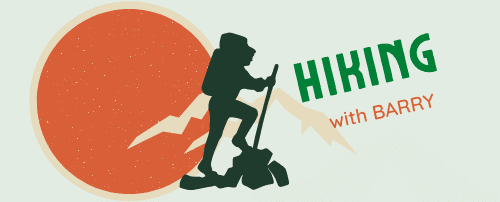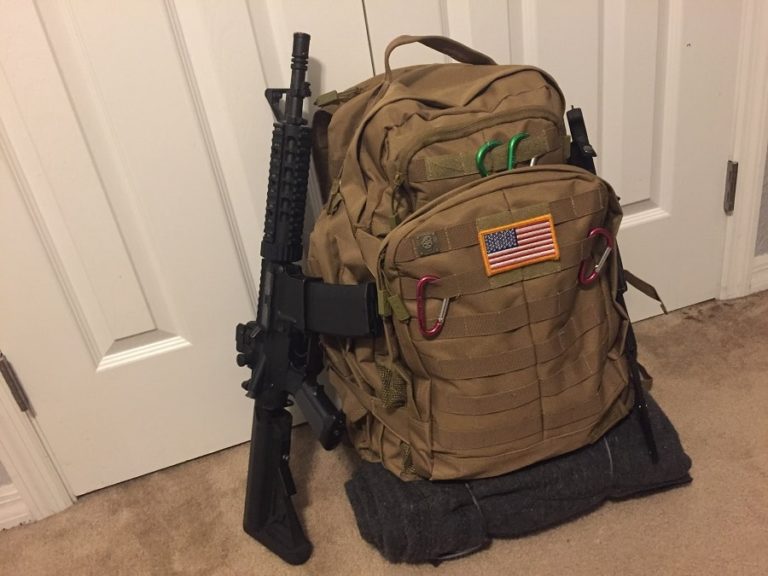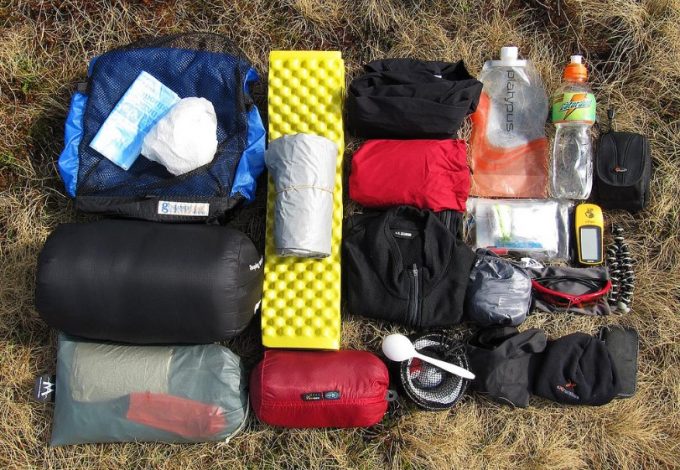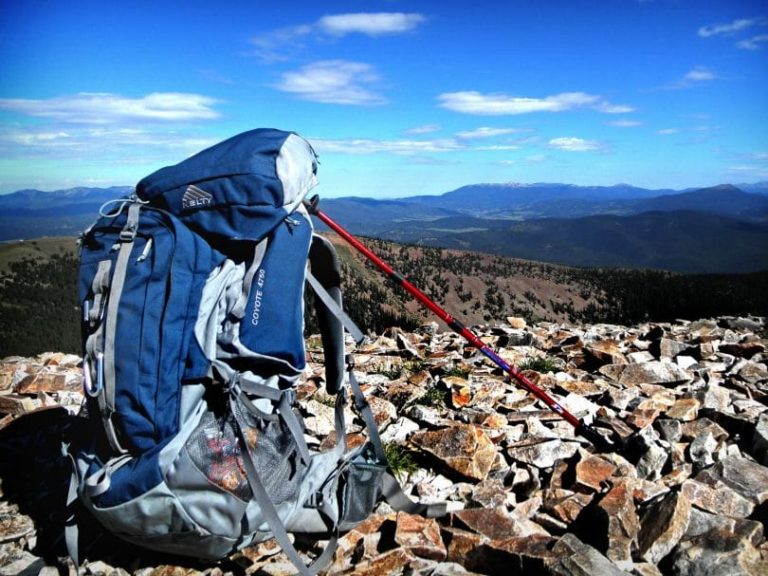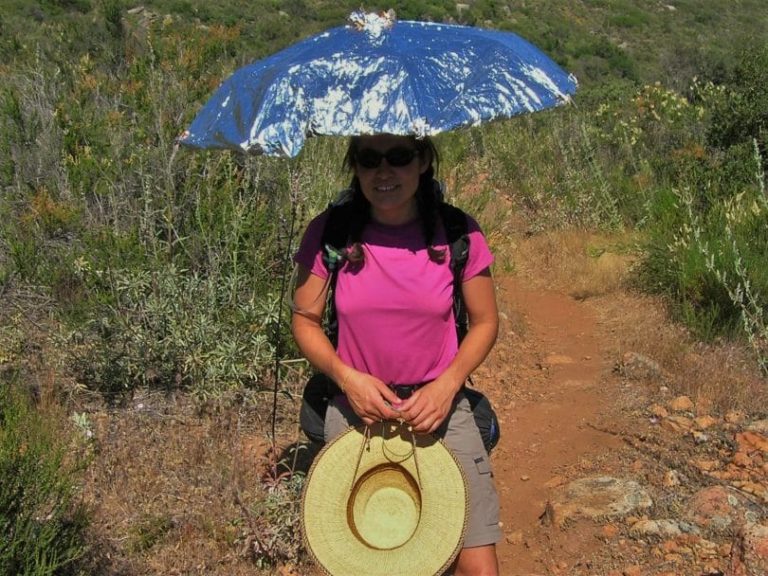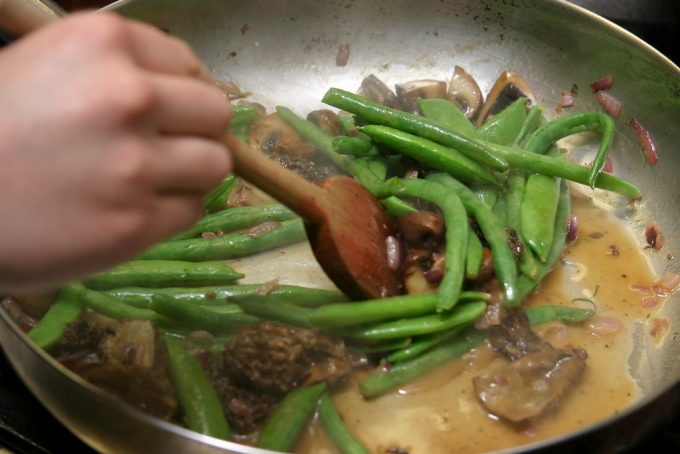Ultralight Backpacking Tips: How to Make Everything Fit
Everyone can agree that the main problem when we go hiking, camping or do some outdoor activity is to easily get everything we need with us. That’s why we can always appreciate some ultralight backpacking tips because sometimes it seems like we need to be Tom Cruise when he saves the world – it’s like a real-life mission impossible.
Of course, there’s always a way to make things done the right way if there’s a will for it. As long as you know on which parts to cut weight off and where to compromise, you should be able to enjoy your trips without carrying any extra load on your back.
That’s why we are going to work through this problem thoroughly and offer you some of the best solutions that will help you on your trip. Most of the tips are easy to follow and should work great even for absolute beginners.
First Things First – Prepare For The Task
It is very important to prepare right for the right occasion. Just like when you’re going out and about – you can’t dress like a diva and go jogging.
If you plan to go fishing, you can’t ignore the fact that the cane will be very difficult to fit in the sack. You can’t fish with your bare hands, however, so you’ll have to make some compromises and leave some less important things behind to make space for the cane.
It is a wise idea to think about how your trip will be and analyze the situations that might happen to you. Adventures are cool, but when you’re in the wild, too much adventure is called ignorance and very often it cost lives.
When you make the list what is essential and what is not so much needed for the planned trip, you’re ready to look for best options and try to reduce the weight of your backpack.
Don’t Save Weight on Things That Are Important
You have to think ahead and always be prepared with a set of tools that are most important for handling the rough nature. You never know what will happen in the wilderness. It is unpredictable and often scary.
You can find everything cheaper and made of plastic in the supermarkets, but that doesn’t mean you need to get everything from there and go camping. Remember – not all light tools are the best ones!
Must-haves For Your Trip
Clean drinking water, a knife, first aid kit, a rope, and a watch with a compass, or at least only a compass are among the things you must always have. Never save space or leave them just to make room for something else.
- Knife – You can’t get a plastic knife because it will fail you at the most important moment. Unless you go for a walk in the park and you feel hungry so you need the knife to add some peanut butter to your bread slices.
If we talk about real trips and the really important things you need to pack, then we’re talking about seriously well-made things you need to use in the wild to survive. The knife that we took as an example is small and it doesn’t matter what material it is made of as long as it’s sharp and strong enough to cut tree branches.
- Water – A can or a bottle of water is a must. The human body can survive without food for about three weeks, but it’s a different story when it comes to water. A normal healthy person can go without water about three days, and after that, you can be sure it will be the worst case scenario.
- First aid kit – People think that the first aid kit is something they don’t need because they’re experienced in handling the rough nature, but those who are really experienced know that a first aid kit is something that can save yours or someone else’s life. Don’t lose the first aid kit.
- Rope – A rope doesn’t actually take any space. It’s tied to the backpack, so it is easily accessible and it allows you to put some other things in the sack.
- Compass – The compass is important just like the knife. Unlike in the far past, many watches have compasses on them, so it will not take any additional space, but it still something you must always carry with you in case you get lost.
Now that we have our list of most important things, we can start with the tips on how to make your backpack ultralight and have a joyful trip.
Top Tips for Ultralight Backpacking
Everyone that went to at least one backpacking adventure in nature knows that the best way to enjoy is going with nothing more than a pair of boots and some clothes. Everyone knows that the more things a person carries, the harder and less joyful the trip is.
Heavy backpack reduces the enjoyment, so after countless series of backpacking trips around the world, here’s what we know about lightweight backpacking:
Choosing the Right Backpack is Key
Building a house starts by placing the foundations in the ground. Think of your backpack as the foundation in the quest for losing weight while backpacking. Choose a backpack that is light but will provide enough space for everything you’re planning to take with you.
As mentioned before, think about how long your trip will be and get a backpack that suits the occasion. You don’t really need a gigantic backpack with dozens of pockets if you’re going on a weekend trip and the weather is sunny and warm.
In fact, if you’re trying to accomplish the “ultralight backpacking” mission, you need to find a backpack with as little zippers, unnecessary compartments or frames because these things just add on the weight of it. Find a backpack that is built from light materials, but will still do the job.
Another thing you should have in mind is the model of the backpack. Some models offer better balance and are more ergonomic than others. Some have more additional features that are very useful and will take the pressure off your back meaning – you might carry more weight, but you will feel better.
Of course, it’s always up to the person that chooses the backpack what he or she likes more. Some people like smaller backpacks with more features, and some like more space in one place. Common to both is the material that the backpack is made of, and that is something you must have in mind.
Getting the best tent
Again, plan your trip and see if you need a tent at all. If the weather conditions are fine, if it is warm, sunny, and the bug problem is not on the list, then you probably don’t need a tent at all. Lose it completely, don’t drag it with you “just in case”.
If the weather is fine, anything can be a pillow, and if you insist on not sleeping on the grass, then a small sleeping pad will do the job. Sleeping pads are much lighter and take much less space. A sleeping pad doesn’t go inside your backpack, so it’s a perfect solution.
Another idea for those days and nights that are not too cold is the tarp. A simple tarp is very light and takes little space, but will still offer great protection from the sun.
If the tent is really necessary, then get the best there is. There is a variety of tents not heavier more than a pound, but when you add this and that also not weighing much, you’ll end up like you’re going to the moon in a space suit.
A great tip when it comes to tents is to leave the footprints. You don’t need them in most cases and they add a lot to tent’s mass. The rain fly is also something you don’t necessarily need if you’re sure that the weather will be on your side.
Bivy Shelter vs Sleeping Bag
If the tent is something you like to avoid, you can think about a bivy shelter or a sleeping bag. The bivy shelter, although as light as the tent, offers the comfort of going camping without feeling like you miss anything that the tent offers.
A sleeping bag is a smaller and lighter solution but without the comfort that a bivy can offer. If you choose the sleeping bag you won’t make a mistake no matter what the weather conditions are, just be sure you choose the right one. Sleeping bags made of down feathers are the best. They are light and will easily protect you from the water.
The only disadvantage of the sleeping bag is that some people think of it as a little too claustrophobic and you can’t use it for anything else but sleeping. When it comes to the bivy shelter, you have many options and advantages especially when space is in question.
How to Save Space on Food and Drinks
It’s easy to cut down on your weight when you are sure that you can find everything you need out there. But where’s the fun of having everything under control? Hikers, climbers, and adventurers, in general, love the nature because it is unpredictable.
You can’t make a map of nature springs every two miles, can you? That’s why you always have to be prepared before you start your trip. If you want to save weight, then here are some backpacking tips and tricks when food and drinks are in question.
Water
There’s no way to reduce the weight of the water. You only need to calculate how much water will you need on your trip. The only way to reduce weight, in this case, is to be prepared to refill every time you encounter a water source.
This means you’ll need to pack some equipment for purifying undrinkable water, but that will add to the weight that you’re trying to reduce from the start. However, if you have no other choice, it is much smarter to make this choice and pack some stuff that will allow you drinkable water, than to get caught without water and get dehydrated in the wild.
Food
When it comes to food, there are far more options. First of all, you have to make sure that you pack enough food for the entire trip. You can’t get hungry and have no food at all unless it is your last day and you’re close to civilization.
Second, there is no need of telling you that packing those delicious tea cookies in a metal case is not acceptable, right? Get food packed in little freezing bags, they’re excellent for these kinds of occasions. They keep the food dry and they’re light.
The type of the food is a matter of taste. It is recommended that all food have lots of calories and energy in them, so forget about your homemade salads. Remember that outdoor adventures are about nature and food is only to keep you not hungry.
With that being said, don’t be afraid to get some chips, tortillas, candy bars, nuts, and other things that you usually avoid when you’re home. When you’re going camping, hiking or any other outdoor activity you lose a ton of calories and you need foods that will keep you full.
Feel free to enjoy all your favorite junk food, just pack as much as you need without exaggerating. You don’t want your backpack to look like a store shelf because you won’t have space for more important items.
Coffee, Alcohol and Other
Outdoor activities are all about joy and if the morning coffee is something you enjoy then you should have that lovely morning cup of coffee. Just don’t drag your espresso machine with you, be rational and get some small instant coffee bags.
Same goes for alcohol or some favorite juice you love. Place the liquid in a smaller container, maybe a small bottle or something so it won’t take too much space but when the time is right, you’ll have them on you for full pleasure. On top of that, alcohol might come in handy for cleaning and disinfection.
Don’t Dress to Impress
When you’re trying to pack ultralight you have to leave your suit and tie at home. Forget about going to the nearest town for a night out – instead, pack only the things you really need.
Pack only one more item of everything that you’ll be wearing on yourself. That means one more pair of underwear, socks, shirt, and bottoms. That way, you’ll always have a pair of everything in reserve if you need to change what you already wear.
If the weather is hot, you’ll have less trouble because all the clothes will be lighter and smaller. If the weather is wet and cold, you’ll need to pay extra attention to the clothes you choose.
Don’t Save on Clothes in the Winter
Winter hat, a raincoat, a jacket and some warm gloves are part of the things you must have in you if the weather is unstable and you don’t know how cold it will be. The raincoat will protect you not to get wet, and the gloves with the hat will keep you warm.
If the conditions get extreme, you’ll simply put on more layers of clothes on you. After all, when you’re walking or running with all the equipment on you, the body will produce a lot of heat that will keep you warm. When you stop for camping, the products for sleeping are made for such conditions and you won’t have any trouble.
The material of the clothes is also very important. We all love our jeans, but they are very heavy so choose some bottom clothes that are lighter. Your grandma’s sweater specially made for your camping trips is very sweet, but you better leave it home and get something more appropriate.
Choose the Extras Carefully
Have you packed all the essentials mentioned above? Good. Is there more space in your backpack? If the answer is yes, then start thinking about the extras.
If you don’t have too much space left, then you’ll need one more selection. No matter how much space you have left, please don’t pack things like a thermos or an ax, just because it looks cool to have them on you in the mountains.
Lots of people carry unnecessary gear just because they think it’s cool. Binoculars, cameras, books, big flashlights, towels, soap – if you’re trying to pack ultralight, please make sure that any of these, or other things are really necessary, and think if there’s a way to do the job they’re made for without them.
You don’t really need a towel and a soap in the wild – water is just enough in 90% of the cases, and for everything else, a little alcohol will do the rest.
Tips for Better Mobility
When you finally think you’re ready, there are just a few things more to mention for a high-class experience out there. How to organize all the equipment for better movement.
- Make sure that things are not hanging to lose from the sides of your backpack. When they do, they’ll make you lose the balance while you’re walking on rough terrain. It may seem silly, but that light stick you’re not using at the moment and is hanging on the side will double its weight when the gravity pulls it down.
- When you pack your backpack, try the heaviest items to be placed in the middle of the backpack and closer to your body. This way you’ll make an illusion that these things are part of your body and with this, you’ll maintain better and easier balance.
- When you get the backpack on you, first tight it up on the hips. The hips carry the most, so it’s most important to feel the best possible in that area. After this, adjust other belts.
Ready to Get Started?
In the end, don’t forget to have some fun on your trip. Remember that trips in nature should be all about enjoying the outdoors and not about the things you carry along. Behave responsibly and always remember to pick up after yourself.
Do you think we’ve missed out on any useful hints and tips when it comes to ultralight backpacking? If that’s so, drop us a comment and let us know – we’d love to hear back from you!
